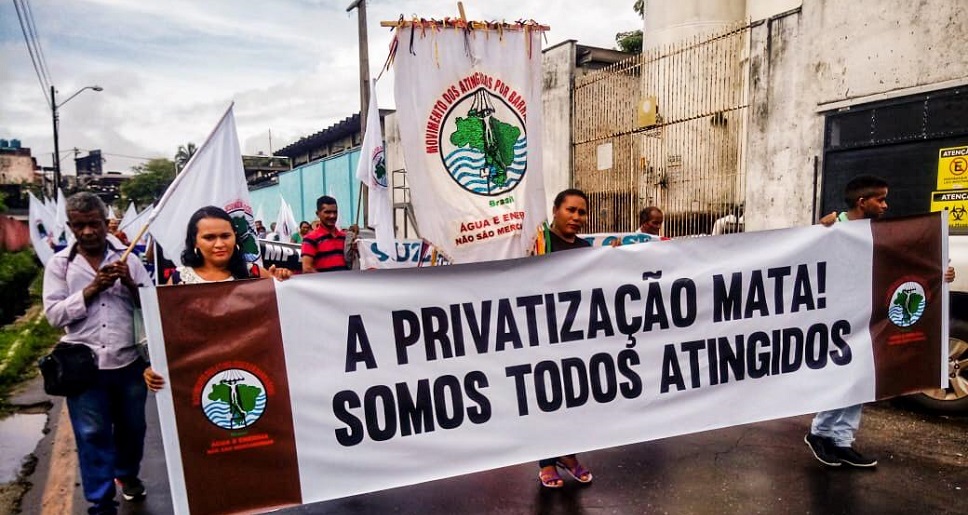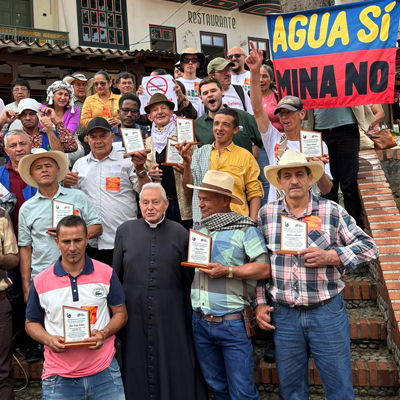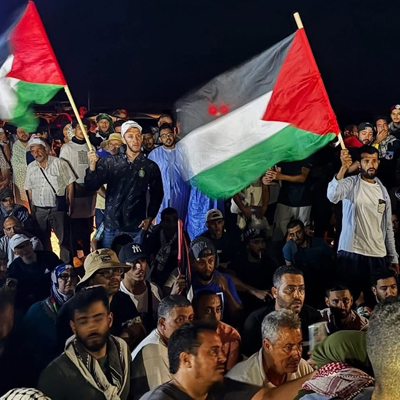Life cannot be dammed
FoEI: “The fight against hydroelectric dams is part of our global fight for Climate Justice and to Save Our Rivers”
 MAB Mobilization. Photo: MAB/Facebook.
MAB Mobilization. Photo: MAB/Facebook.
March 14th marks the International Day of Action against Dams and for Rivers. Mobilizations around the world denounced the socioenvironmental impacts of these construction works that operate in hydroelectric and mining projects.
The Climate Justice and Energy Program of Friends of the Earth International expressed its solidarity with the communities affected by hydroelectric dams, especially the Lenca indigenous people defending their river, their rights and life in Honduras.
Lucy Cadena, coordinator of said Program, talked to Real World Radio about the guidelines and actions of FOEI in the fight against dams in the world: “Friends of the Earth groups all over the world are fighting devastating hydro projects. Many of our governments who are calling for – or implementing –renewable energy systems are including mega hydro projects in their plans, and they give huge concessions to hydro companies, because this enables the big hydro energy companies – often from the Global North) to retain control over our energy systems, and continue their extractivist agenda”.
“FoEI demands that energy be recognized as a common good, and that communities should have control over their energy systems, and access and protection for their rivers”, Cadena said.
Cadena also made reference about some dams and their consequences :”For nearly 20 years, JA! – Friends of the Earth Mozambique has fought for the release of information on the planned Mphanda Nkuwa dam on the Zambezi river. The river has already been devastated by the Cahora Bassa dam, which was built by the colonial Portuguese government of the time. The ecological and social impacts of the dam include the displacement of people, the devastation of river peoples’ livelihoods, the blocking of access to the river for communities and disruption and loss of habitat for wildlife”.
“Mozambique’s predominantly rural population is highly dependent on rivers and river ecosystems for their livelihoods. So, the mismanagement of water resources has not only had devastating impacts on river ecosystems but also on communities that depend on the rivers. As we see so often, dams are flashpoints for human rights abuses and violence against local communities”.
“This is true in the Balkans, home to some of Europe’s last pristine river systems, where Friends of the Earth Bosnia-Herzegovina has been supporting the ‘brave women of Kruscica’, who have been continuously blockading their bridge in a vigil to prevent the construction of a mini-hydro project, and have faced violent attacks from the police. In December, the women took a big step forward towards winning their battle to save their river after a legal victory, where a regional court annulled the permission to build the dams.
Also in Honduras, Madre Tierra / Friends of the Earth Honduras has been supporting communities resisting the PROGELSA hydroelectric project: “The indigenous Lenca communities are threatened by the project, and local and indigenous people resisting the dam have worked with Madre Tierra to build their capacity so that they can better defend their territorial sovereignty, so that water will be recognized as a human right and so that they can ultimately stop the project”, said the Climate Justice & Energy program co-coordinator.
So on this International Day of Action for Rivers, FOEI stands with the Lenca indigenous people defending their river, their life and their rights. In Honduras, as in Bosnia-Herzegovina, in Mozambique, and all over the world, the fight against hydroelectric dams is part of our global fight for Climate Justice and to Save Our Rivers.
To know more about FoEI´s position on energy sovereignty, check out their Energy Manifesto.





